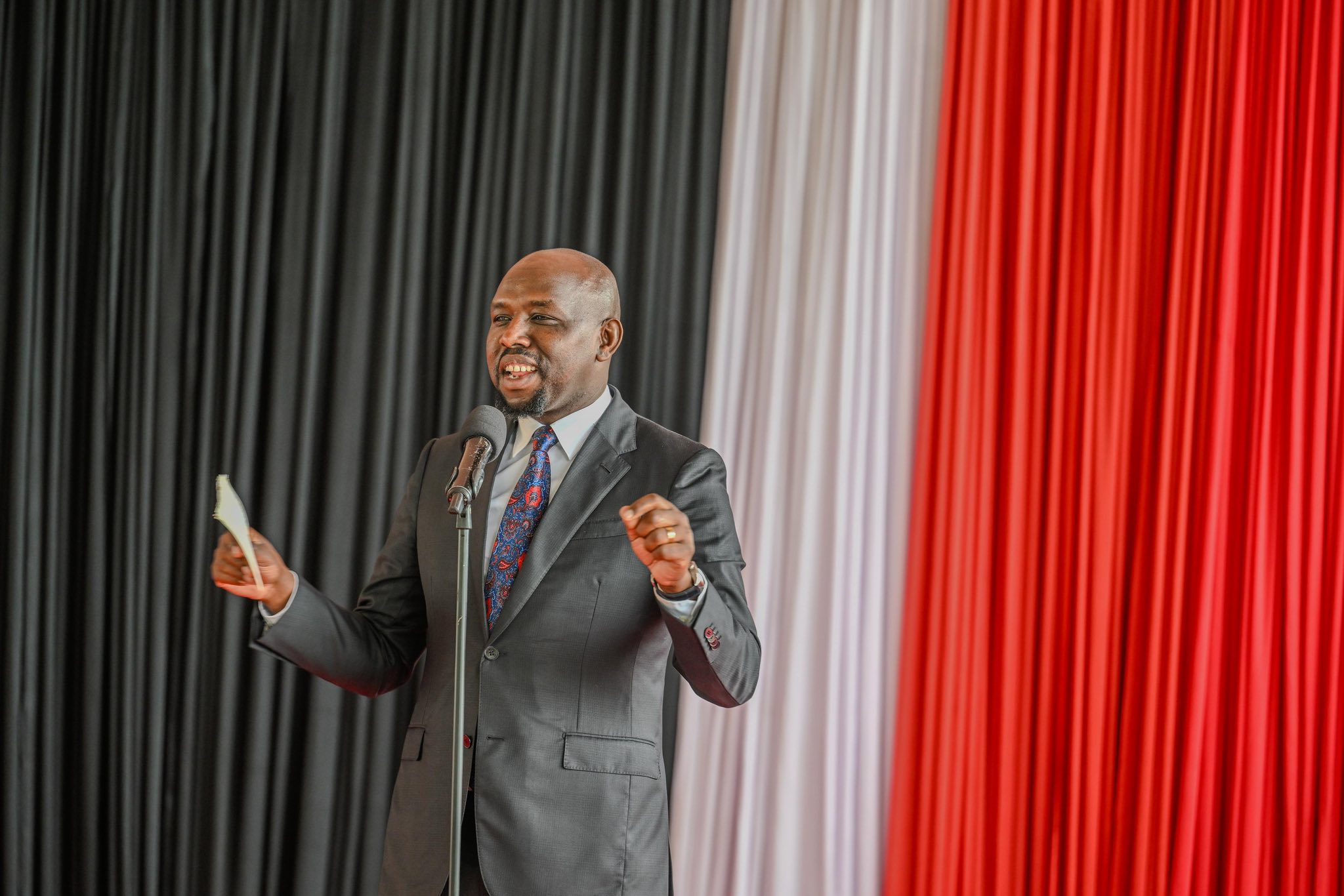
Murkomen: I can’t order shoot-to-kill, law guides police action
Interior Cabinet Secretary Kipchumba Murkomen has denied allegations that he instructed police to shoot to kill amid the violence that accompanied recent demonstrations.
Murkomen insists thathis comments were a restatement of the law governing the use of force by officers and not a directive for extrajudicial action.
Speaking on Saturday at State House Nairobi during a meeting hosted by President William Ruto with regional and national security leaders, CS Murkomen stated: “I cannot order the IG on anything because the constitution denies me to so. I did not order the IG to conduct any extra judicial killings,”
“I did not say anywhere that anybody should be shot and killed. You will find nowhere where I said a police officer should take orders from myself. No!” he explained.
Murkomen emphasized that police officers are permitted to use firearms only under specific, legally defined circumstances.
“I am not the one who wrote the law. The law states that a police officer, when faced with a life-threatening situation, must be able to use their firearm,” he said.
Quoting the National Police Service Act, Murkomen highlighted that force is justified strictly when less extreme measures are insufficient, particularly to prevent serious injury, protect life, or prevent significant property damage.
Over 300 police officers were injured during the anti-government protests on June 25.
However, Murkomen reiterated his passionate defence of officers on the frontline, lamenting the silence from religious leaders, foreign envoys, and opposition figures when police are harmed, as was witnessed during Wednesday’s protests.
“When a police officer is attacked or a police station is burned, no church leader will speak, and no foreign envoy will speak. The so-called opposition won’t speak. If all these people do not speak, and I am the Cabinet Secretary in charge of security, and I am a lawyer, and I don’t speak, who will?” he posed.
According to Murkomen, the attacks against law enforcers not only endanger them but also risk plunging the country into lawlessness. He warned that sustained assaults on law enforcement and public institutions could lead to nationwide insecurity.
“If the country burns, nobody will be spared. Not the politicians, not a Cabinet Secretary, not a judge, nor a police officer,” he said, while also calling on the Judiciary to reflect on its decisions, especially in light of recent events where public institutions were targeted by rogue elements during protests.
“There is a feeling that the Judiciary is leaving the safety of the country to the Executive, and then they do as they wish. It is time we had a conversation about what is in the national interest,” he said.
He cited the example of Kikuyu Law Courts, which were torched during the protests—destroying public records, title deeds, and key documents.
Regarding media conduct during the protests that turned violent, the Interior CS urged self-regulation by journalists, warning of potential consequences if misinformation or incitement is allowed to spread unchecked.
“If we have to switch off the media to save both the media and the citizens, we will do so because we want to stop our country from burning. We want to save them from irresponsible journalism. However, if the media regulates itself, we will not bother,” he said
He once again called for respect for police officers who serve under extreme conditions, including counter-terrorism missions along volatile borders.
“Some people don’t know the challenges that police officers go through. Do they realize how much these officers risk their lives to fight Al Shabaab, sleeping in Boni Forest and along the borders of our country to protect citizens?” he said.
